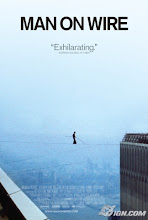Patricia White’s “Feminism and Film” touches upon the reflection theory, which addresses the belief that films reflect social reality. According to this theory, the portrayals of women in film represent the way society regards women. Feminists criticize these stereotypical and distorted ideas film gives about women in regard to how they act and what they want. In Brick Lane, the main character, Nazneen, is initially portrayed as a frail, helpless woman trapped in a loveless, arranged marriage. In relation to the reflection theory, Nazneen represents the stereotypical woman confined to her role as a mother and wife. Nazneen is filled with desire for her freedom and seeks it in a handsome clothing worker with whom she has an affair. Through Nazneen and the men in her life, including her abusive husband and her immature boyfriend, the film shows the distorted idea that women should be responsible for everyone and everything in their lives. This control that men have on women as seen in the film is amplified by the underlying Muslim conventions. At the end of the film, Nazneen finds the strength to end her relationship with Karim and gains her freedom from her husband, overcoming the expectations of women’s roles in society as initially portrayed in the film.
-CN













No comments:
Post a Comment